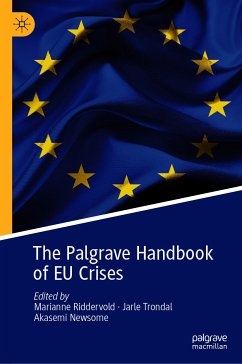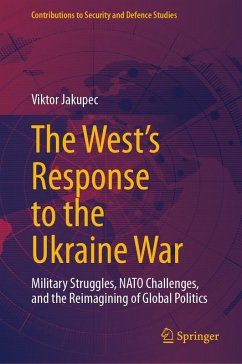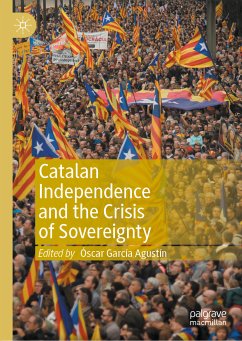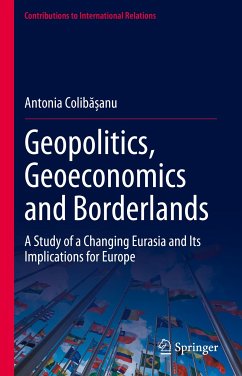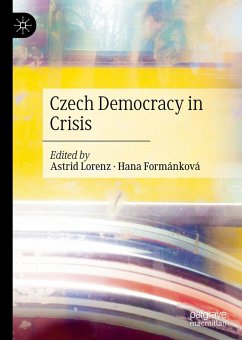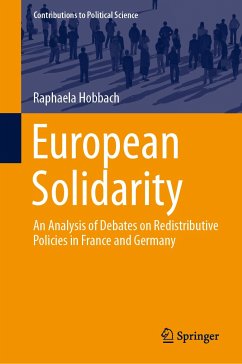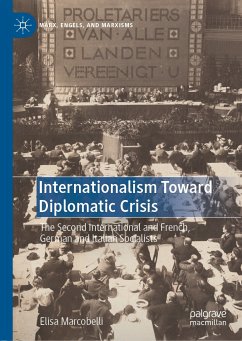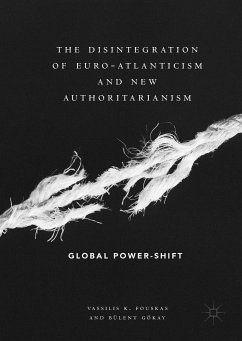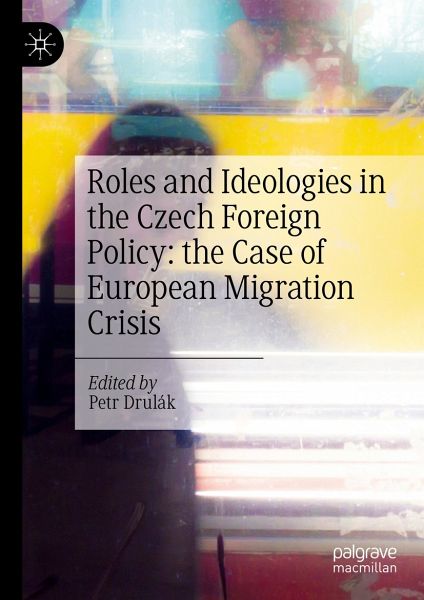
Roles and Ideologies in the Czech Foreign Policy: the Case of European Migration Crisis (eBook, PDF)
Versandkostenfrei!
Sofort per Download lieferbar
44,95 €
inkl. MwSt.
Weitere Ausgaben:

PAYBACK Punkte
22 °P sammeln!
This edited volume investigates the Czech response to the European migration crisis of 2015. Focusing on the discourses and practices the book analyses the foreign policy ideas which were guiding the Czech foreign policy in the period from 2014 to 2019. The chapters offer a variety of methodologies (discourse analysis, content analysis, and case study) and perspectives (decision-makers, NGOs, emotions, foreign policy practice, and European partners). All the chapters rely on a common conceptual framework that operationalises foreign policy ideas as ideologies (Atlanticism, Europeanism, Interna...
This edited volume investigates the Czech response to the European migration crisis of 2015. Focusing on the discourses and practices the book analyses the foreign policy ideas which were guiding the Czech foreign policy in the period from 2014 to 2019. The chapters offer a variety of methodologies (discourse analysis, content analysis, and case study) and perspectives (decision-makers, NGOs, emotions, foreign policy practice, and European partners). All the chapters rely on a common conceptual framework that operationalises foreign policy ideas as ideologies (Atlanticism, Europeanism, Internationalism, and Sovereignism) and roles (Democracy Supporter, Protectee, Faithful Ally, Regional Collaborator, Reformer, and Prosperity Builder). The main benefit of the book consists in using a unique conceptual framework to produce new empirical insights into the Czech foreign policy making. The book will be of particular interest to the students of the Czech politics and it can be also used as a case study in foreign policy-making. It also offers a nuanced perspective on the Central and Eastern Europe decision-making during the EU migration crisis which goes beyond the usual ideological classifications of those countries in the West European public discourse.
Chapter "Foreign Ministry" is available open access under a Creative Commons Attribution 4.0 International License via link.springer.com.
Chapter "Foreign Ministry" is available open access under a Creative Commons Attribution 4.0 International License via link.springer.com.
Dieser Download kann aus rechtlichen Gründen nur mit Rechnungsadresse in A, B, BG, CY, CZ, D, DK, EW, E, FIN, F, GR, HR, H, IRL, I, LT, L, LR, M, NL, PL, P, R, S, SLO, SK ausgeliefert werden.




